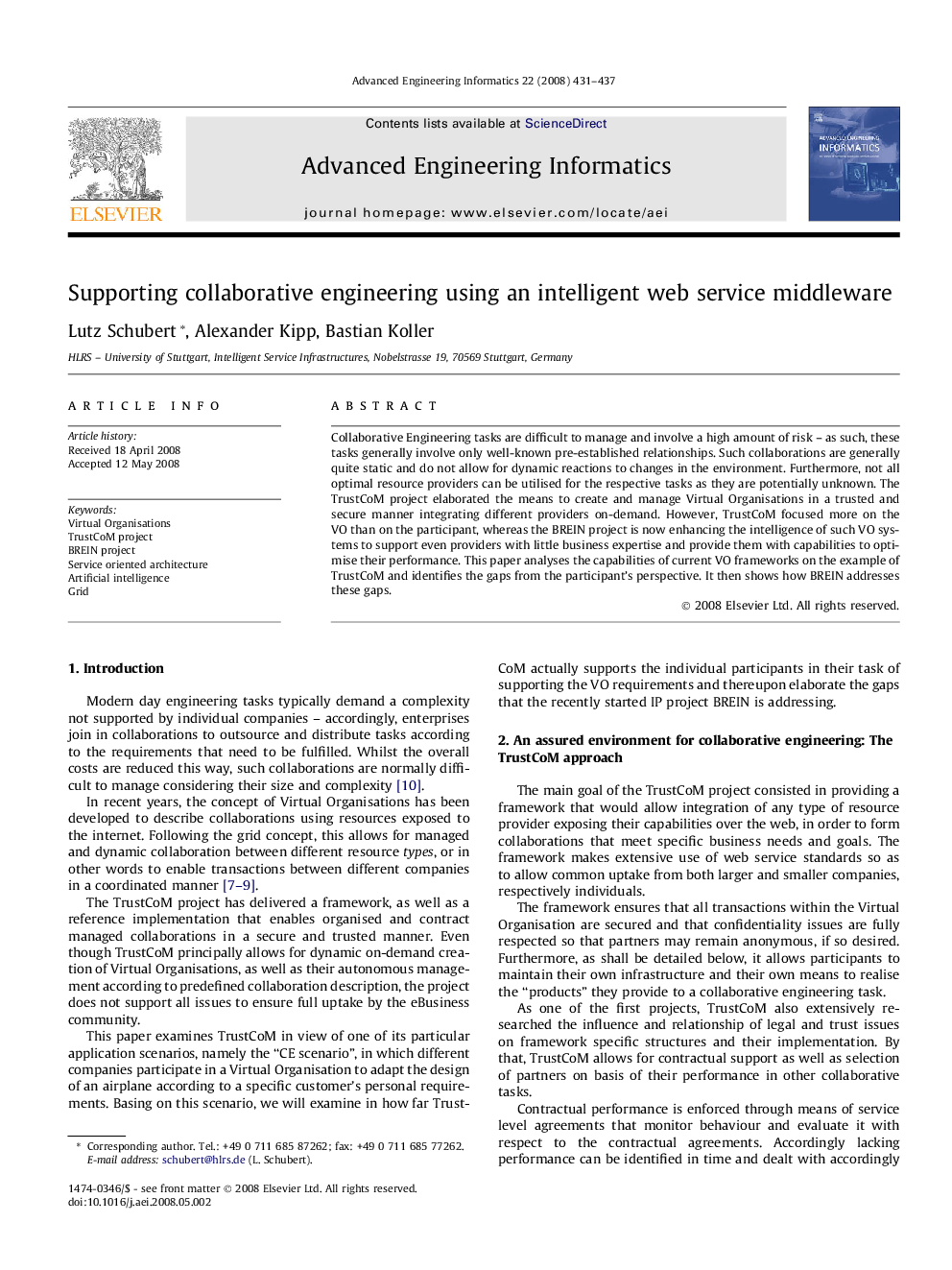| Article ID | Journal | Published Year | Pages | File Type |
|---|---|---|---|---|
| 242251 | Advanced Engineering Informatics | 2008 | 7 Pages |
Collaborative Engineering tasks are difficult to manage and involve a high amount of risk – as such, these tasks generally involve only well-known pre-established relationships. Such collaborations are generally quite static and do not allow for dynamic reactions to changes in the environment. Furthermore, not all optimal resource providers can be utilised for the respective tasks as they are potentially unknown. The TrustCoM project elaborated the means to create and manage Virtual Organisations in a trusted and secure manner integrating different providers on-demand. However, TrustCoM focused more on the VO than on the participant, whereas the BREIN project is now enhancing the intelligence of such VO systems to support even providers with little business expertise and provide them with capabilities to optimise their performance. This paper analyses the capabilities of current VO frameworks on the example of TrustCoM and identifies the gaps from the participant’s perspective. It then shows how BREIN addresses these gaps.
